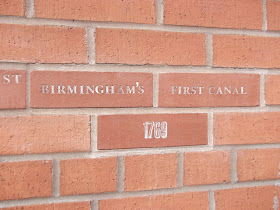Wednesday, 13 February 2013
Saturday, 9 February 2013
Birmingham Nature Centre
Birmingham Nature Centre on the Pershore Road was opened in 1974. It was originally called the
Birmingham Natural History Museum. The entrance is off the main Pershore Road
and is easily accessible from the city centre by the 45 or 47 buses, or the 61
and 63 which stop on the Bristol Road.
The land here was once a fulling mill,
known as Pebble Mill,
which gave its name to the BBC buildings that once stood here.
The Nature Centre is now home to many animals, including
guinea pigs, deer, rheas, lynxes and all manner of reptiles. Apparently there
used to be elephants here! And the porcupines are kept in the old fish pond.
It’s a weird little place – much loved, quite dated, but still a good way to
spend an afternoon before wandering off up to Cannon Hill Park or back along
the river towards Stirchley.
The Bournbrook flows through the Nature Centre on its way to
the Rea.
The Birmingham Council website has a page of updates for the Nature Centre with news of breeding programmes etc. I can’t seem to
find much information with regards to the history of this building or the
previous mill, which is a shame!
 |
| Sloth!! |
Tuesday, 5 February 2013
Glacial Erratic; University of Birmingham
I did it! I found another one! I knew there was a glacial
erratic somewhere on the University of Birmingham main Edgbaston campus, but I
was never exactly sure where, and there has been a lot of work on campus with
the construction of the Bramall Music Hall.
A few weeks ago, a friend and myself walked under the
Bramall down a new flight of steps, and there it was! A huge boulder, perched
on some grass. I will admit, I got very excited – but I am a geology student.
 |
| Note Michael for scale ;-) |
This BBC page called ‘Walk Through Time’ alludes to the boulder being near the Physics building, but it isn’t exact.
The BCGS Geology Matters website has an interesting article on the origin of these huge boulders – I had always assumed that they were from
the last ice age, but maybe they are even older deposits?























